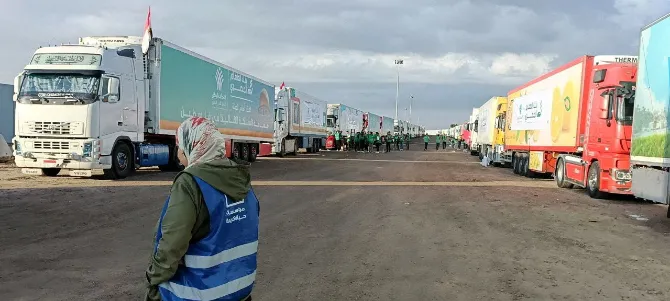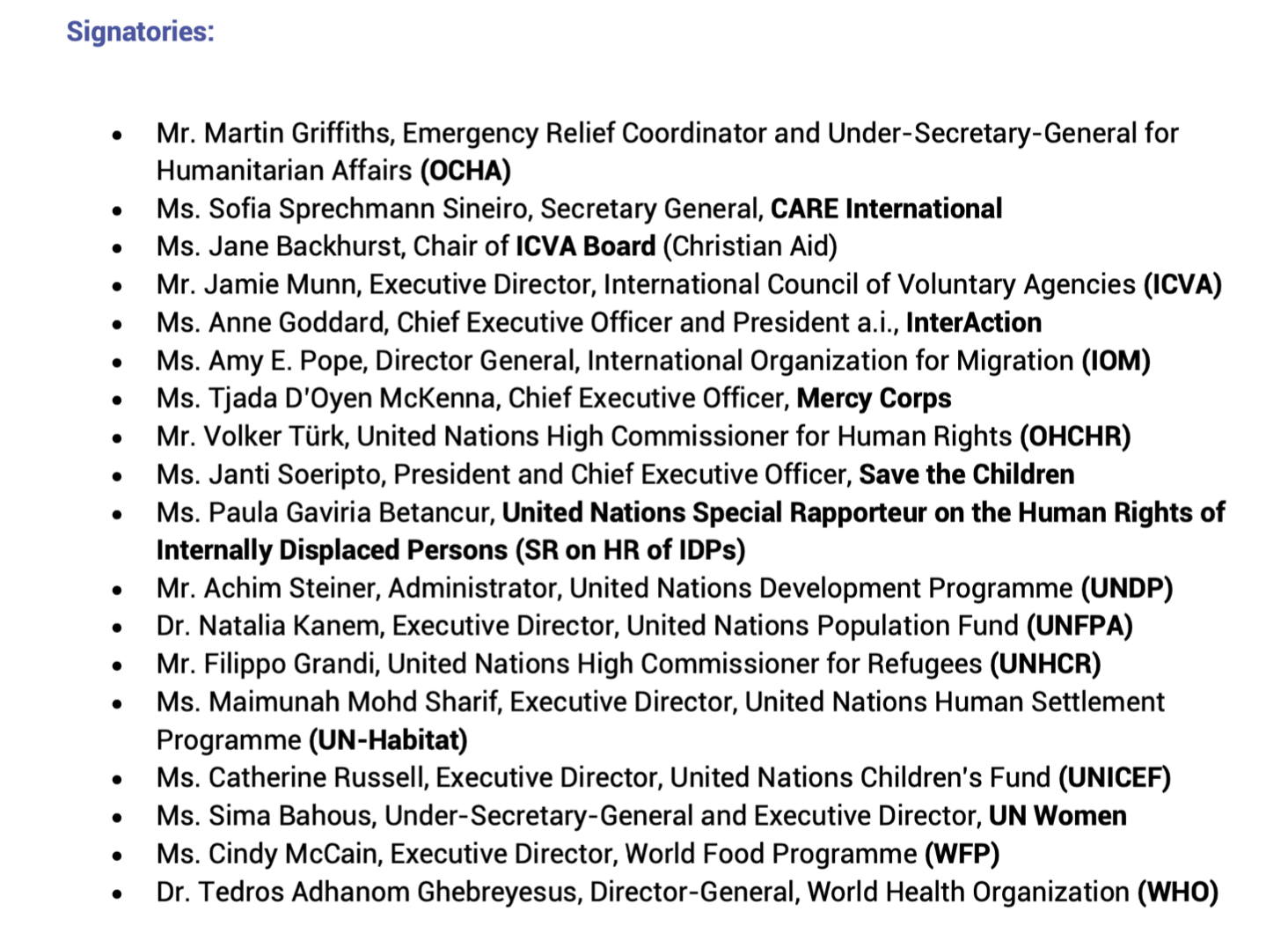-
CENTRES
Progammes & Centres
Location
The competition between the US and China has severely impacted the delivery of humanitarian aid to Gaza. This is a wake-up call to reform multilateral aid delivery and to reconsider the role of the UNSC in it.

As offensives continue in Gaza, the diplomatic high table of the Security Council has witnessed multiple vetoes defeating one resolution after another, making a UN-imposed ‘humanitarian ceasefire’ unforeseeable. This has rendered the UN agencies such as the World Health Organisation, World Food Programme, UN High Commissioner for Human Rights (OHCHR), and the UN High Commissioner for Refugees (UNHCR) helpless and unable to provide the required humanitarian support. The first veto was seen when the United States (US) vetoed Resolution S/2023/773 because it did not mention Israel’s right to self-defence and neither named Hamas. This negative vote was expected as the US has used its veto on 34 occasions between 1945 to 2023 on resolutions related to Israel and Palestine. The US considers it “unwise for the Council to attempt to resolve the core issues that divide Israelis and Palestinians”. This allows the US to maintain its regional dominance around Israel and promote direct negotiations between parties, as opposed to negotiations mediated by the United Nations Security Council (UNSC). The US’ proposal of a “pause” rather than a halt or “ceasefire” also follows the trajectory of strategically protecting Israel’s interests by containing the might of the UNSC.
The US considers it “unwise for the Council to attempt to resolve the core issues that divide Israelis and Palestinians.”
While the US veto in the Security Council was predictable, it was beyond expectation that the US would go ahead after using its veto to sponsor its draft resolution and table it before the UNSC. The rarity of this US-sponsored resolution is two-fold. First, it is unusual for it to engage the UNSC in the Palestinian conflict. This opposes its decades-old stance to fend off the Israel-Palestine discord from the Council. Second, this resolution saw the first tandem veto cast by the Russia-China dyad in the Israel-Palestine issue. Within the tandem veto, the Russian negative vote was expected but China’s outright use of a veto rather than a usual abstention should be viewed as a significant development. When read with China’s interest in brokering a peace deal in West Asia, the Chinese veto suggests that it is following the same playbook that the US has been following, i.e. deadlocking the UNSC so that mediation can be brokered directly between parties, under the influence of dominant great-powers. As of now, Qatar is acting as a mediator between the warring Israel and Hamas. A Chinese veto at this juncture sends a clear indication to Hamas that China not only has the stature but also the will to make bold manoeuvres in multilateral institutions to appease the Arab Gulf. This bolsters China’s credentials before the Palestinian leadership as a probable mediator of the Israel-Palestine dispute. China had openly declared that it would welcome negotiators from Palestine and Israel to hold direct peace talks in China. This also clarifies that like the US, China welcomes peace negotiations outside the UN multilateral network.
While the US veto in the Security Council was predictable, it was beyond expectation that the US would go ahead after using its veto to sponsor its draft resolution and table it before the UNSC.
China’s proposal for an International Peace Conference should also be read with geopolitical logic. China’s demand for such a peace conference is understood by commentators as adherence to the UN-hinged multilateral framework. This stems from the UN General Assembly Resolution 42/66D which calls on the UNSC to convene such a peace conference. Considering the presence of a hardened US within the UNSC, such a conference is highly unlikely as Israel has opposed the very idea of it. Therefore, the recent call for a conference by China serves as a coverup to the underlying ambition of the Chinese to directly mediate the West Asian conflict. This allows China to continue its ambitions to directly mediate between parties without being blamed for taking the UN multilateral setup hostage to geopolitical interests.
While paralysing the UNSC serves the interests of the US and China, the downstream impact of the vetoes in the Council has impacted the full chain of multilateral response. The Inter-Agency Standing Committee (IASC), the top UN body that coordinates humanitarian response, responded to the Gaza crisis with a joint statement signed by the chief representatives of 18 UN bodies (See Picture 1). Without a clearance from the UNSC, the multi-body response has been confined to such statements since the aid going into Gaza is being operationally handled by non-UN Egyptian organisations like the Egyptian Red Crescent, and Egyptian Food Bank, amongst others. These organisations have formed a consortium called the National Alliance for Civil Development Work (NACDW) and are the ones working on the ground. Even the UN has changed course from conventional aid channels and has finally got approval from the Egyptian government to have a UN humanitarian team guide the aid delivery being done by the Egyptian Red Crescent. Individual nations and non-governmental organisations that are sending aid for Gaza are also reaching out to the Egyptian Red Crescent and other Egyptian organisations as the UN agencies remain arrested due to a deadlocked Security Council. Although this highlights the important role played by civil society actors, it also is a glaring collapse of multilateral responsiveness in times of crisis. The jamming of a UN-operated humanitarian aid is real.

Picture 1. The List of Signatories to the IASC Joint Statement on Gaza.
What is necessary is to ramp up the collaboration so that the civil society actors can easily tap into the aid stockpiles of the UN agencies and increase the humanitarian aid to Gaza.
This impact on humanitarian aid is the collateral damage inflicted by the competition between the US and China to present themselves as the brokers for peace in West Asia. This should serve as a wake-up call to tweak the very design of multilateral aid delivery and the role of the UNSC in it. The UNGA should be given a greater say in aid delivery. It would be futile to press for organisational reform when the house is on fire. The situation merits intense coordination between the UN agencies and the NACDW. The initial coordination has started since the UN team can now guide aid delivery efforts done via NGOs from Egypt. What is necessary is to ramp up the collaboration so that the civil society actors can easily tap into the aid stockpiles of the UN agencies and increase the humanitarian aid to Gaza.
Angad Singh Brar is a Research Assistant at the Observer Research Foundation
The views expressed above belong to the author(s). ORF research and analyses now available on Telegram! Click here to access our curated content — blogs, longforms and interviews.

Angad Singh Brar was a Research Assistant at Observer Research Foundation, New Delhi. His research focuses on issues of global governance, multilateralism, India’s engagement of ...
Read More +